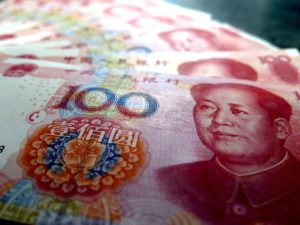In China’s New Foreign Investment Law and Forced Technology Transfer: Same As it Ever Was and in China Approves New Foreign Investment Law to Level Playing Field for Foreign Companies. MEH, we wrote how we were not impressed with China’s new Foreign Investment Law 中华人民共和国外商投资法. Since then, a number of commentators (who near as I can tell cannot read Chinese) have hailed the law as a positive development for foreign companies doing business with China and in China. The impression these commentators are giving is that China’s new Foreign Investment Law (FIL) will raise up foreign companies to become equal to Chinese companies.
1. China’s New Foreign Investment Law is BAD for Foreign Businesses.
This is just not correct. The intent of the new law is actually the opposite and for people like me who have been doing business with China for decades, even the idea that it would be otherwise is somewhat laughable. The intent and the reality of the FIL is to pull down foreign investors to the status of privately owned Chinese companies. At that level, foreign invested companies will be firmly under CCP control and they will operate at a permanent economic disadvantage to PRC state owned enterprises. In other words, foreign invested companies in China will be crushed by the PRC state in the same way nearly all private Chinese companies are crushed by the state.
Why any commentator views this as a happy fate is difficult for me to understand. One of my China lawyer friends who is even more cynical about China than I (perhaps because he has spent about 40 years of his life in China to my relatively paltry 20 years there) thinks those who rave about this new law do so knowing it will not lead to positive change, but do so because their livelihoods literally depend on it. I prefer to trace it to their not understanding the law either because they are not lawyers or because they cannot read Chinese.
To understand the impact of the new FIL, some history is required. The core of the new FIL is the concept of “national treatment.” Under this principle, foreign invested companies are treated the same as other privately owned Chinese companies. This demand for national treatment has not come from foreign investors; it has come from Chinese invested enterprises.
In 1992, the Deng Xiaoping government sought to attract foreign investment to China by offering significant incentives to foreign investors, including the following:
- Exemption from corporate income tax.
- Exemption from VAT and other business taxes.
- Free/cheap land and rent.
- Exemption from social welfare payments for employees.
- Exemption from personal income taxes for foreign employees and executives.
- Freedom from control by the CCP.
- Freedom from worker unions.
These incentives encouraged a flood of foreign investment into China. These incentives did not apply to Chinese locally owned enterprises and at one point China imposed a 35% corporate income tax on Chinese owned businesses, while imposing no income tax on foreign owned businesses. This same sort of distortion applied to various other business incentives and in the early 2000s, private Chinese companies started complaining about it being difficult to compete with foreign owned enterprises.
Beginning in 2005, the Chinese government started removing and reducing various foreign company benefits. Foreign owned enterprises were made subject to corporate income tax at the same rate as Chinese owned companies. The full personal income tax and social benefit system was imposed equally on both Chinese employees and foreign employees. Local governments were prohibited from offering land and tax breaks to lure foreign investment. By 2018, there were virtually no incentives left for foreign invested enterprises. The new FIL should be seen as the final nail in the foreign incentive coffin.
2. China’s New Foreign Investment Law Strips Foreign Businesses of Any Advantages
Foreign invested companies will now receive no incentives or benefits at all. They will be treated the same as any private Chinese company. They will pay tax at an effective rate of 60%. When they remit after tax profits to their shareholders, they will pay an additional withholding tax of 15%. They will be subject to the 17% VAT rate. They will pay some of the world’s highest rates for land and office rent. Most importantly, they will be entirely under the control of the CCP and the Chinese government. No “special status” will shield them. Among other things, this will mean the following:
1. When the CCP arrives to set up a party branch in a foreign enterprise, compliance by the foreign enterprise will be required.
2. When the CCP branch insists on reviewing confidential foreign company business records, compliance by the foreign company will be required.
3. When the workers in even a five person foreign company office state they will form a union controlled by the local CCP/government, compliance by the foreign company will be required.
4. When the local telecom/ISP service states it will set up the foreign company’s Internet and email server, compliance will be required.
5. When the foreign company is told it can no longer use its international VPN to get access to necessary news and information, compliance by the foreign company will be required.
6. When the foreign company is told that all company data must be stored on a cloud server located in China and accessible to the Chinese government, compliance will be required by the foreign company.
7. When the Chinese government/military arrives tells a foreign company the PRC Cybersecurity Law mandates it turn over its source code and other confidential information, compliance will be required.
Demands like those mentioned above have been made on WFOEs and Joint Ventures since 2002. However, foreign invested enterprises have for the most part been able to fend many of them off because their WFOE/JV status provided them with a sort of privilege or exemption. This argument was never a strong one, but it largely worked. Under the new FIL, any special status for WFOEs and Joint Ventures has been eliminated, and with that the last best argument for protection from invasion and control by the PRC government and the CCP has been eliminated as well.
And yet, the new FIL does not really put foreign invested enterprises on an even footing with Chinese invested companies; that too is an illusion. The FIL makes clear the PRC will continue with its negative list policy. Foreign investors will only be permitted to invest in business sectors not on the negative list and the new negative list will be virtually identical to the current list. This means many of China’s most attractive sectors will remain closed or mostly closed to foreign investment, including Internet and commercial networking (SaaS and e-commerce), banking, securities, insurance, logistics, online payment, media (film, TV, games, magazines, books), automobiles (JV still required), petrochemicals, mining and metals production, real estate and real estate development. The list is long and it will not be getting shorter.
So it is not even accurate to say foreign investors will be pulled down to the level of private Chinese companies since so many of the most attractive areas for investment in China will remain “off limits” to foreign investors. So to be accurate, the actual result of China’s new Foreign Investment Law will be to pull foreign investors down to a status even lower than that of private Chinese investors. The new FIL will not level the playing field between foreign and Chinese investors. It will instead consign foreign investors to their own tiny playing field, surfaced with gravel; no grass or even astroturf.
So why any analyst would claim these changes are a good thing for foreign companies doing business in China is hard to understand. We can argue about the motives and the abilities of those saying this but that would be pointless. I have devoted much of my life to helping foreign companies (mostly North and South American and European and a smattering of Australian and Japanese companies) navigate China’s laws and I take no pleasure from saying this, nor does my saying this in any way help me or my law firm economically. But the truth is the truth, and the truth is things have once again taken a turn for the worse for foreign companies in China and I welcome anyone to prove otherwise.

























